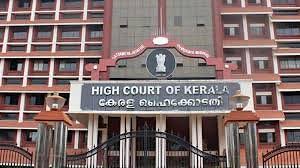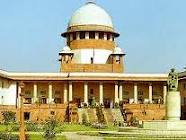It would be most imperative to note that while delivering a judgment on a very significant legal point pertaining to stamp vendors, the Supreme Court in a most learned, laudable, landmark, logical and latest judgment titled Aman Bhatia vs State (GNCT of Delhi) in Criminal Appeal No. 2613 of 2014 and cited in Neutral Citation No.: 2025 INSC 618 in the exercise of its criminal appellate jurisdiction that was pronounced as recently as on May 2, 2025 has minced just no words absolutely to hold very rightly in no uncertain terms most unequivocally that the stamp vendors are public servants as defined under the Prevention of Corruption (PC) Act since they perform an essential function for the State. It must be noted that the Apex Court was dealing with an appeal that had challenged a Delhi High Court judgment to uphold conviction of a stamp vendor in a corruption case dating back to 2003. The licensed vendor had allegedly been caught receiving Rs 12 for a stamp paper of Rs 10.
We also need to note that in 2013, the accused Aman Bhatia was convicted and sentenced to rigorous imprisonment for 6 months. The Delhi High Court dismissed later Aman’s appeal. It also held that a stamp vendor is a public servant for the purposes of the Prevention of Corruption Act.
In the ultimate analysis, we see that the top court also clearly held that since Bhatia was discharging a duty in which both the State and the public have an interest, he meets the definition of public servant as defined under the Prevention of Corruption Act. The top court then after assessing the evidence against him found clearly that the prosecution had not been able to prove that there was a demand for bribe from the accused. The Apex Court thus accepted the appeal and set aside Bhatia’s conviction. Very rightly so!
At the very outset, this brief, brilliant, bold and balanced judgment authored by Hon’ble Mr Justice JB Pardiwala for a Division Bench of the Apex Court comprising of himself and Hon’ble Mr Justice R Mahadevan sets the ball in motion by first and foremost putting forth in para 2 that, “This appeal arises from the judgment and order passed by the High Court of Delhi in Criminal Appeal No. 348 of 2013 (“impugned judgment”) by which the High Court dismissed the appeal filed by the appellant herein and thereby affirmed the judgment and order dated 30.01.2013 passed by the Special Judge in Complaint Case No. 11 of 2009 holding the appellant herein guilty of the offence under Sections 7 and 13(1)(d) read with Section 13(2) of the Prevention of Corruption Act, 1988 respectively (for short, “the PC Act”).”
To put things in perspective, the Bench envisages in para 3 while dwelling on the factual matrix that, “As per the case of the prosecution, on 09.12.2003, the complainant went to the Office of the Sub-Registrar, Janakpuri, Delhi to purchase a stamp paper of Rs. 10/-. The appellant, a licensed stamp vendor, made a demand of Rs. 12/- for a stamp paper of Rs. 10/-. Against the excess demand of Rs. 2/-, the complainant lodged a written complaint with the Anti-Corruption Branch (for short, “ACB”). Pursuant to the said complaint, a trap was laid by the ACB. The complainant was handed over one GC note of Rs. 10/- and one GC note of Rs. 2/-, smeared with phenolphthalein powder, by the Raid Officer. The complainant alongwith the raiding party left for the Office of the Sub-Registrar, Janakpuri, Delhi. After reaching there, when the complainant asked for a stamp paper of Rs. 10/-, the appellant again made a demand of Rs. 12/-. The complainant gave the smeared GC notes to the appellant who accepted them with his right hand. At the signal of the panch witness, the raiding party arrived at the spot. The appellant was apprehended. The wash of his hand turned the solution of sodium carbonate pink and the notes were allegedly recovered from the register kept for maintaining the records of the stamp papers.
3.1 Upon completion of the investigation, chargesheet was filed in the court of Special Judge (Anti-Corruption Branch), Delhi. The Special Judge framed charges against the appellant for the offences punishable under Sections 7 and 13(1)(d) read with Section 13(2) of the PC Act respectively. The appellant denied the charges and claimed to be tried.
3.2 In the course of the trial, the prosecution examined nine witnesses, of whom four are crucial for the adjudication of the matter at hand:
i. Complainant (PW-1);
ii. Panch witness (PW-4);
iii. Raid Officer (PW-6);
iv. Investigating Officer (PW-9)
3.3 The Trial Court, upon appreciation of the oral as well as the documentary evidence on record, held the appellant guilty of the offences with which he was charged and sentenced him to undergo rigorous imprisonment for a period of six months and fine of Rs. 1000/- for the offence punishable under Section 7 of the PC Act and rigorous imprisonment for a period of one year and fine of Rs. 1000/- for the offence punishable under Section 13(1)(d) read with Section 13(2) of the PC Act. The sentences were ordered to run concurrently.”
Be it noted, the Bench notes in para 4.5 that, “Thereafter, the High Court proceeded to look into the evidence on record to ascertain the correctness of the finding of the guilt. The High Court noted that the panch witness had been consistent as regards his statement about the appellant having accepted the tainted money. In this context, the Court observed that if the appellant had not demanded excess Rs. 2/-, there was no occasion to accept it in the first place.”
Needless to say, the Bench then states in para 52 that, “It is well-settled that mere recovery of tainted money, by itself, is insufficient to establish the charges against an accused under the PC Act. To sustain a conviction under Sections 7 and 13(1)(d) of the Act respectively, it must be proved beyond reasonable doubt that the public servant voluntarily accepted the money, knowing it to be a bribe. The courts have consistently reiterated that the demand for a bribe is sine qua non for establishing an offence under Section 7 of the PC Act.”
Briefly stated, the Bench while citing the relevant case law observes in para 53 that, “A five-Judge Bench of this Court in Neeraj Dutta v. State (Government of NCT of Delhi), reported in (2023) 4 SCC 731, categorically held that an offer by bribe-giver and the demand by the public servant have to be proved by the prosecution as a fact in issue for conviction under Sections 7 and 13(1)(d)(i) and (ii) of the PC Act. Mere acceptance of illegal gratification without proof of offer by bribe-giver and demand by the public servant would not make an offence under Sections 7 and 13(1)(d)(i) and (ii) of the PC Act.”
While citing yet another relevant case law, the Bench then points out in para 54 that, “It was further explained by this Court in P. Satyanarayana Murthy v. State of A.P., reported in (2015) 10 SCC 152, as follows:
“23. The proof of demand of illegal gratification, thus, is the gravamen of the offence under Sections 7 and 13(1)(d)(i) and (ii) of the Act and in absence thereof, unmistakably the charge therefore, would fail. Mere acceptance of any amount allegedly by way of illegal gratification or recovery thereof, dehors the proof of demand, ipso facto, would thus not be sufficient to bring home the charge under these two sections of the Act. As a corollary, failure of the prosecution to prove the demand for illegal gratification would be fatal and mere recovery of the amount from the person accused of the offence under Section 7 or 13 of the Act would not entail his conviction thereunder.” (Emphasis supplied).”
As a corollary, the Bench then holds in para 55 that, “From the above exposition of law, it may be safely concluded that mere possession and recovery of tainted currency notes from a public servant, in the absence of proof of demand, is not sufficient to establish an offence under Sections 7 and 13(1)(d) of the PC Act respectively. Consequently, without evidence of demand for illegal gratification, it cannot be said that the public servant used corrupt or illegal means, or abused his position, to obtain any valuable thing or pecuniary advantage in terms of Section 13(1)(d) of the PC Act.”
It is worth noting that the Bench notes in para 67 that, “On examination of the entire evidence, we are of the opinion that the prosecution has failed to establish beyond all reasonable doubt, the demand of bribe and its acceptance, in a trap laid by the ACB. In such circumstances, there is no question of a presumption under Section 20. Consequently, we find ourselves compelled to conclude that it would be entirely illegal to uphold the conviction of the appellant under Sections 13(1)(d)(i) and (ii) read with Section 13(2) of the Act.”
Resultantly and far most significantly, the Bench then clearly holds in para 68 that, “In light of the aforesaid discussion, we have reached the following conclusion:
68.1 The legislature has used a comprehensive definition of “public servant” to achieve the purpose of punishing and curbing the growing menace of corruption. Keeping this intention of the legislature in mind, we are of the view that the definition of “public servant” as defined under the PC Act should be given a purposive and wide interpretation so as to advance the object underlying the statute.
68.2 It is the nature of duty being discharged by a person which assumes paramount importance when determining whether such a person falls within the ambit of the definition of public servant as defined under the PC Act.
68.3 Stamp vendors across the country, by virtue of performing an important public duty and receiving remuneration from the Government for the discharge of such duty, are undoubtedly public servants within the ambit of Section 2(c)(i) of the PC Act.
68.4 In the case at hand, the appellant was eligible for receiving discount on the purchase of stamp papers owing to the license that he was holding. Further, the discount is traceable to and is governed by the 1934 Rules framed by the State Government. Thus, the appellant, without a doubt, could be said to be “remunerated by the government” for the purposes of Section 2(c)(i) of the PC Act.
68.5 Further, the prosecution has failed in establishing the allegation of demand for illegal gratification and acceptance thereof beyond reasonable doubt. Therefore, the conviction of the appellant for the offences under Section 7 and 13(1)(d) read with Section 13(2) of the PC Act cannot be sustained and is, thus, liable to be set aside.”
Furthermore, the Bench then holds in para 69 that, “In the result, the appeal succeeds and is hereby allowed. The conviction and sentence of the accused, as awarded by the Trial Court and affirmed by the High Court is set aside.”
In addition, the Bench then further directs in para 70 holding most precisely that, “Bail bond(s), if any, shall stand discharged.”
Finally, the Bench then aptly concludes by holding very briefly in para 71 that, “Pending application(s), if any, shall also stand disposed of.”
Sanjeev Sirohi



